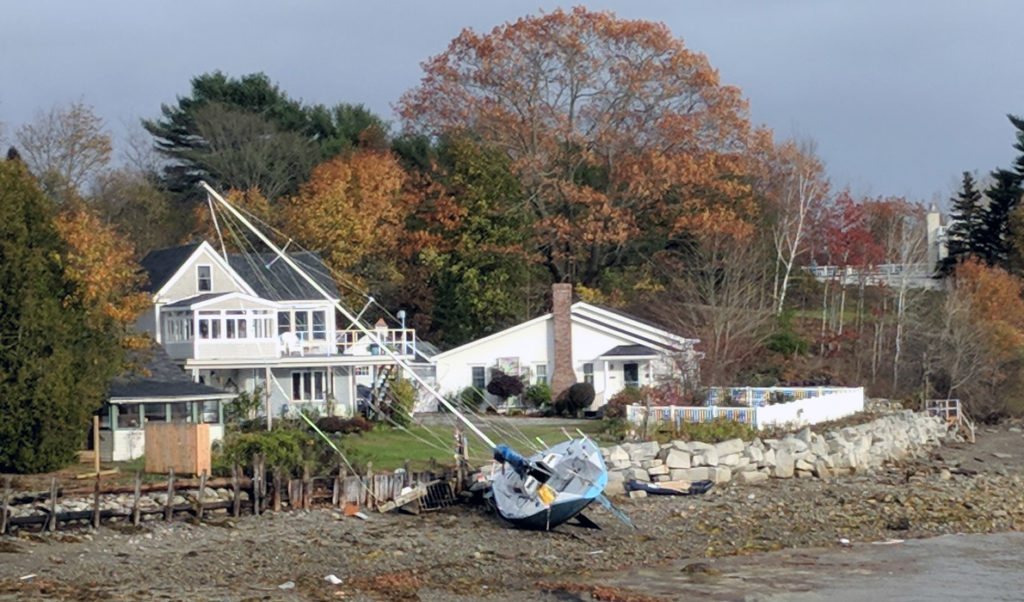By Lydia Blume
I have sponsored a bill, LD 1095, “An Act to Establish the Maine Coastal Risks and Hazards Commission,” that the Legislature’s Environment and Natural Resource Committee will work on when lawmakers reconvene in January. The bill proposes a commission to examine the risks that hazards such as storm surge, sea-level rise, and extreme precipitation pose to municipalities and state assets in Maine.
This commission will ultimately be able to recommend legislation, rules, and other actions to help the state and coastal communities prepare for these conditions. Prioritizing and preparing for coastal hazards will ultimately save lives, money, infrastructure, and the natural resources that are critical to maintaining our valued industries and quality of life on the coast of Maine.
My proposed bill builds upon and adapts the model successfully used by New Hampshire. That state set up a commission consisting of a wide array of stakeholders and experts to assess the coastal risks and hazards brought about by the changing climate. Their efforts resulted in an invaluable summary and detailed recommendation report.
The report, released in March of 2016, has had a real impact in New Hampshire. The findings and the recommendations have significantly increased the knowledge base of coastal risks and hazards in New Hampshire, while concurrently generating buy-in on proposed recommendations across the multiple sectors represented on the commission.
Many of the commission’s recommendations have already passed in New Hampshire, while more are working their way through the system. There are also municipal grant projects underway focused on implementing the commission’s recommendations. The fruits of the commission’s labor are paying off, and the state of New Hampshire is better prepared and more resilient for it.
Of course, New Hampshire has only 18 miles of coastline. Maine’s coastline is far longer and of greater economic importance. Additionally, we have a much more varied coastline. Individual organizations and communities have recognized the need for planning for changes.
We have lots of small coastal studies, and a great deal of data, information, and planning resources generated through many state and federal agencies and other sources. There has been some good work done by some coastal towns. Overall, however, we have an uncoordinated patchwork of resilience along our 5,000 miles of coastline, and we are leaving ourselves vulnerable.
A recent meeting with municipalities showed that a regional approach to preparedness would be very helpful. The commission called for in my bill will be able to take a regional or even a statewide coordinated approach and bring together all the disparate information and resources available. This will provide us with necessary guidance, coordination, direction, and best practices to help all our coastal communities be more resilient to these hazards.
The proposed commission will have a broad-based membership of municipalities, state agencies, regional planners, legislators, and coastal stakeholders (such as tourism, fisheries, and insurance and real estate interests) that an interagency or departmental study does not necessarily include. It is important to give all pertinent interested parties a seat at the table and incorporate their many perspectives to bring consensus.
I am very excited about the possibilities this bill presents, and I look forward to working with all concerned to make sure it passes. We can’t afford to wait any longer to develop the sort of comprehensive look at the hazards we face and the means we have at our disposal to face them. Preparing for the increased likelihood of coastal hazards is an investment we need to make. It is an investment that will protect Maine’s vibrant coastal economy.
Lydia Blume is serving her second term in the Maine House of Representatives and represents the coastal part of York. She serves on the Legislature’s Marine Resources Committee and the Marijuana Legalization Implementation Committee.





